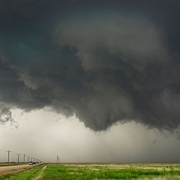Off-Site Youth Activities
June 19, 2017

Snow skiing. Camping. Whitewater rafting. A youth group trip can give students an exciting diversion from their weekly routines, as well as an opportunity to strengthen healthy friendships. Off-site activities may challenge your students to step outside of their comfort zones a bit, but this can bring about a positive result.
Similarly, ministry leaders may find youth event administration challenging, but ultimately rewarding.
Follow these guidelines to maximize the unique benefits of an off-site youth ministry trip and avoid common pitfalls.
Plan Your Trip
Follow these steps:
- Check your church liability policy for exclusions to determine what kinds of trip your liability policy covers.
- Enlist responsible adult supervisors.
- Screen candidates for the following characteristics
- Maturity
- Judgment
- Ability to manage children
- Consistent attendance at your church for at least six months
- Also look for these supplemental qualifications
- First aid and emergency medical training
- Familiarity with the activity
- Enlist enough adults to place at least two in charge of each student group (group size depends on the activity). All adult chaperones must supervise in pairs.
- Screen candidates for the following characteristics
- Keep students’ parents informed. Once you establish dates and a tentative plan for your trip, ask parents to sign an “Activity Participation Agreement.” This form should include:
- Emergency contact information
- Permission to provide medical care
- Acceptance of risks, assumption of liability
- Collect and photocopy participation agreements. Make sure that at least two adults on your trip have copies.
- Confirm that all participants have adequate insurance coverage for the trip.
- Ask adult chaperones in your group to carry cell phones so they can contact a student’s parents or obtain emergency help.
- Give each participant your group leaders’ names and contact information
- Bring First Aid supplies.
Choose Transportation
Chartered bus—Make sure your company has a certificate of insurance and modern, well-maintained vehicles. Do not sign an agreement that makes your ministry responsible for injuries that participants sustain while riding the bus. If the bus driver speeds, don’t be afraid to ask him or her to slow down.
Separate vehicles—Place at least two adults in each vehicle to safeguard against allegations of misconduct. Avoid taking seventeen passenger vans and other large vehicles, if possible.
An exciting location and a fun group of people are a sure recipe for spontaneous fun, but always remember to put safety first. Do not allow horseplay to get out of hand. If your group plays a game in an outdoor area or a natural body of water, check the area thoroughly for hazards, beforehand.
- November 7, 2023
- Stop Plumbing Leaks with FloLogic
-

-
Water and the damage it brings can be one of the most devastating property claims a ministry or organization can experience. Fortunately, there's a solution that identifies leaks when they start, as small as 1/2-ounce-per-minute. It's called FloLogic.
- September 7, 2023
- Increasing Donor Trust
-

-
The ability to inspire others to give is a blessing. Because fundraising can be both exciting and challenging, there are some important details to consider that can help your donors, and organization, have a smooth and successful experience.
- July 31, 2023
- What to Know About Loaning Your Ministry Vehicle
-

-
Has your church or school ever been asked to loan or rent one of your vans or buses to another ministry? Rather than running the risk of loaning or renting your own vehicle, you could consider aiding them financially in renting or chartering a vehicle from a rental agency.
- May 9, 2023
- Save Money with One Change
-

-
A periodic review of your insurance policy is a good way to make sure your ministry is protected for its most current needs, but it also may offer the opportunity to find some significant savings.
- January 26, 2023
- Brotherhood Mutual Foundation Kingdom Advancing Grant
-

-
For the second year, the Brotherhood Mutual Foundation is offering the Kingdom Advancing Grant to innovative Christian church programs that are transforming local communities through ministry.
- January 26, 2023
- Responding to Mission Issues
-

-
Having insurance coverage specifically designed for long-term international missions helps protect your people and organization from the financial impact caused by injuries, lawsuits, property damage, and more.
- January 9, 2023
- Better Achieve Your Mission in 2023
-

- November 10, 2022
- Evaluate Your Ministry's Fire Safety Plan
-

-
With the holiday season right around the corner, it’s wise for ministries to evaluate their fire safety plan. Whether your ministry is hosting a holiday party, prepping treats for charity, or running a community kitchen, make sure you’re well-prepared with these tips.
- September 9, 2022
- School is Back in Session
-

-
As school is back in session, it’s important to make sure your school is equipped with the correct safety procedures. Thinking about your school’s physical security as a series of layers can help you find gaps in your plan. Transportation and volunteers are just two important aspects of your school safety plan to think about.
- July 15, 2022
- Shepherding Ministries in a Time of Change
-

-
Anyone who turns on the news, flips through a magazine, or browses the web can see that American society and culture are experiencing rapid transitions. Some ministries have valid concerns that issues surrounding societal shifts may expose them to negative publicity, governmental scrutiny, or litigation.
- May 12, 2022
- Five Common Tricks of Cyber Scammers
-

-
Cyber security is increasingly crucial in our technologically advanced world. Scammers use many schemes when attempting to steal your data, but you can outsmart them by understanding their methods.
- March 1, 2022
- Resolving Conflict in the Church
-

-
When conflict occurs in the church, it can threaten the unity of a congregation. Experts say the only way to heal conflict is to acknowledge and address it. But how?
- January 25, 2022
- Keep Your Ministry's Money Safe
-

-
Theft isn’t just an issue for banks and large companies. Sometimes the kind and caring nature of your ministry is exactly what makes you a target. Organizational Optional Theft Coverage helps to assure that, if a thief takes advantage of your institution, what’s lost can be restored.
- September 1, 2021
- Prepare Your Ministry for Another Active Earthquake Season
-

-
Earthquakes are starting to rumble the earth again. An earthquake’s impact can range from being a minor annoyance to causing a major disaster. The safety planning you do now can help your ministry protect its people and property.
- July 22, 2021
- Thousands in Relief Funding Available to Ministries Through the Employee Retention Credit
-

-
Most ministry leaders don’t realize there is funding available to non-profit employers including churches, schools, colleges, and camps. This post includes some highlights about the credit and guidance on where to start to see if your ministry is eligible.
- June 17, 2021
- Prepare Your Ministry for Another Active Hurricane Season
-

-
The Atlantic hurricane season officially started June 1, and weather experts say this season is likely to produce above-normal activity. Take action to prepare your ministry to withstand a hurricane now, so you’re not scrambling when a watch or warning is posted.
- April 19, 2021
- Take Time to Review Your Ministry's Child Protection Plan
-

-
April is National Child Abuse Prevention Month. Though child abuse may not be something you could ever imagine happening within your ministry, sexual abuse of a minor is one of the top five reasons churches end up in court, according to Church Law & Tax. Studies also show that a child is much more likely to be sexually abused by a trusted adult than a stranger.
- March 16, 2021
- Prepare for Severe Spring Storms Now
-

-
When severe storms strike, they can produce high winds and tornadoes. Damaging winds can wreak havoc on your ministry’s property and to buildings. A high wind event can crash debris through your windows, strip your siding, down trees on your parking lot, peel shingles off your roof, and fling back the flashing.
- February 25, 2021
- Catalytic Converter Theft on the Rise: Protect Ministry Vehicles
-

-
Thieves are taking advantage of soaring precious metal prices. Take steps to protect your ministry’s vehicles and property.
- November 23, 2020
- COVID-19 and the Christmas Season
-

-
Preparing for this Christmas season may require additional creativity, due to the uncertainty of what COVID-19 may bring in our local community.